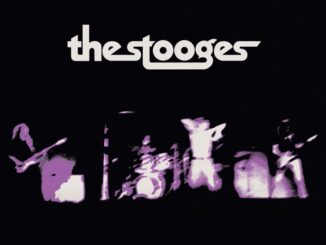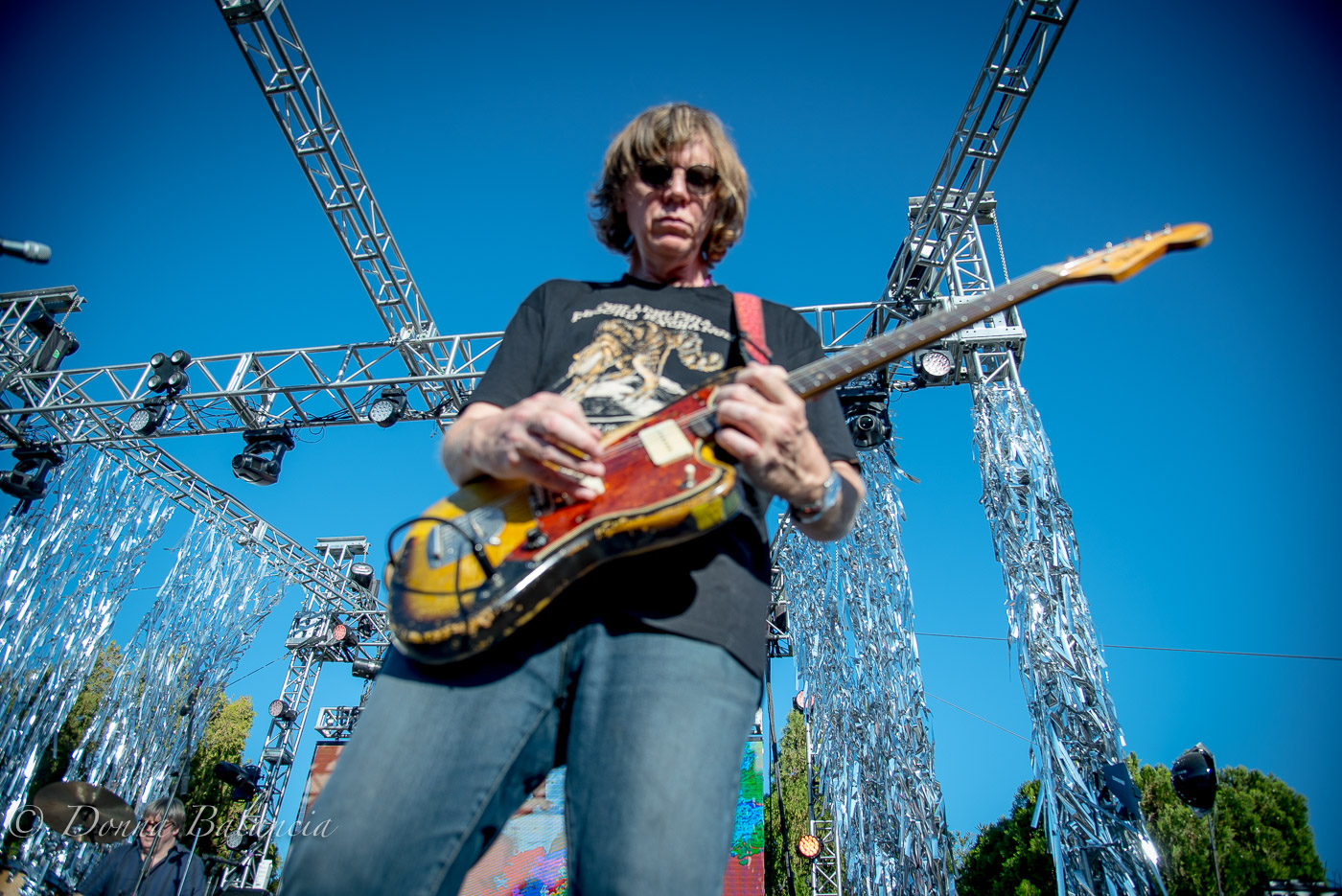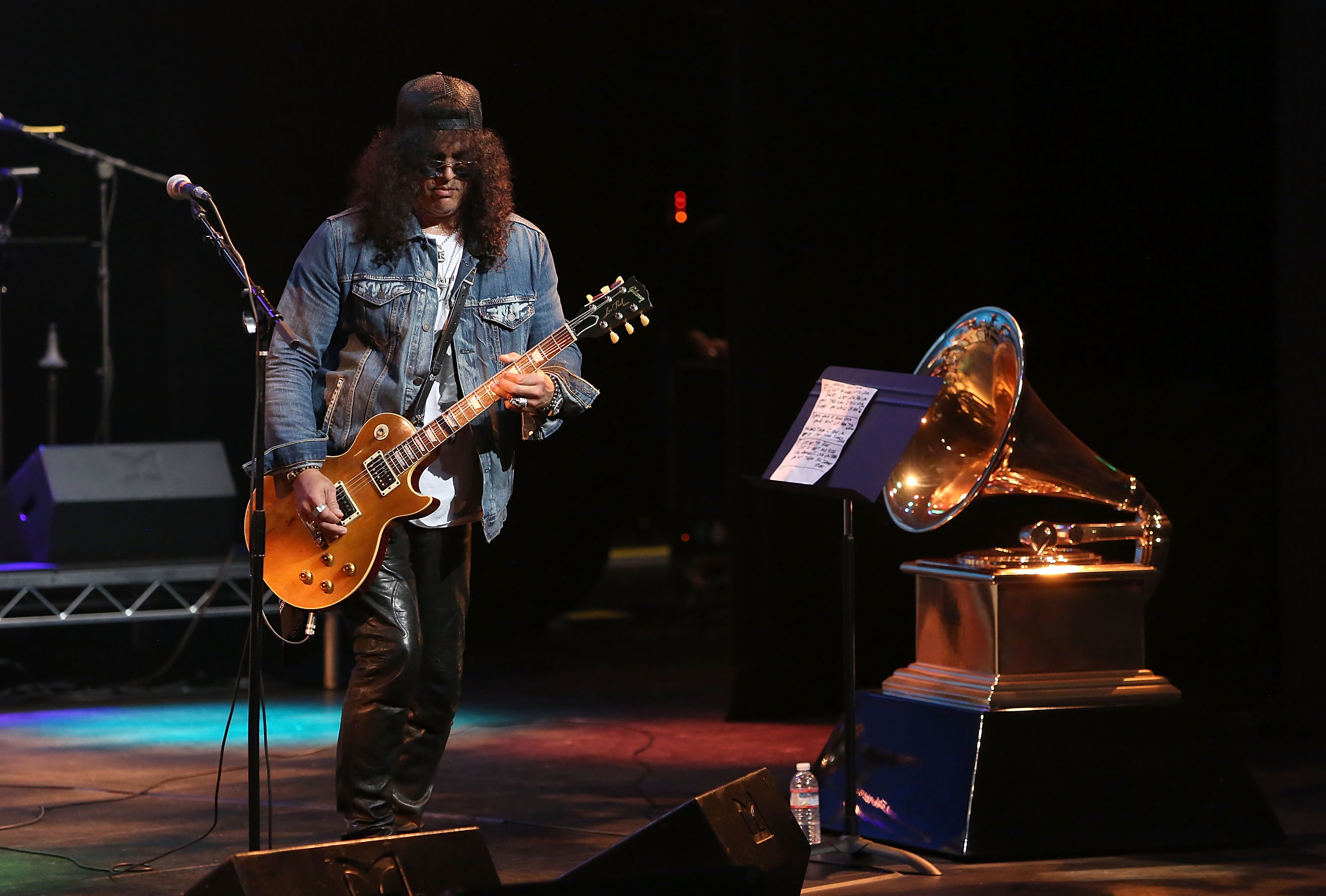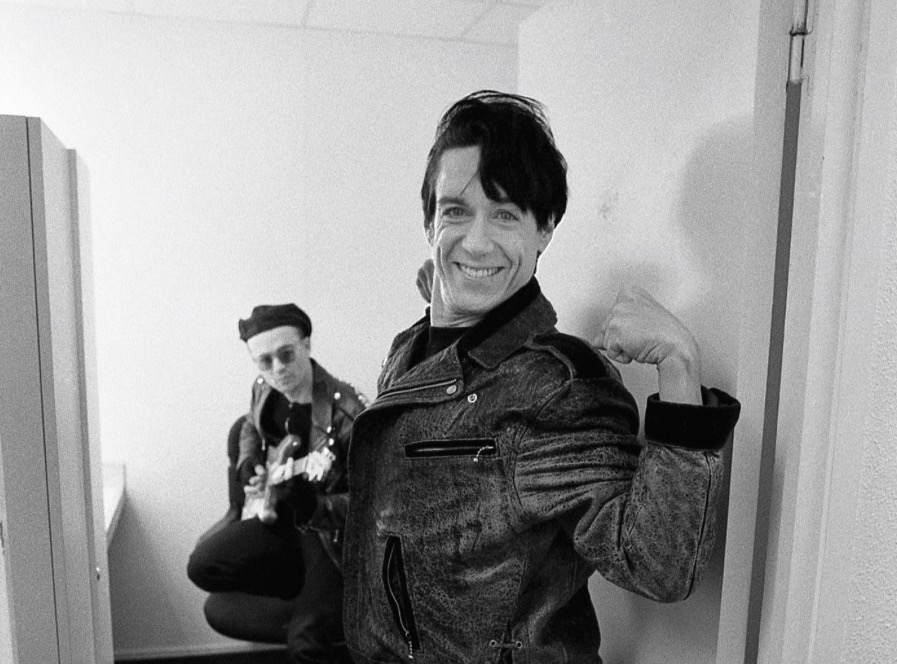
Photos by PAUL McALPINE
Kevin Armstrong has played with some of the most creative and and famous frontmen in music. He worked with not only David Bowie, but he has performed and led the bands for Thomas Dolby, Sinead O’Connor, and now he has reunited with Iggy Pop, with whom he worked during the Blah Blah Blah years in the mid-1980s. Three years in, and with an FYF Fest performance tonight, Kevin sat down with US Rocker Editor Donna Balancia to answer the important questions about music.
CR: Kevin, how did you reconnect with Iggy Pop and get back with the band?
KA: It started with a guy named Tom Wilcox, who used to run a gallery in London, he got involved in ICA, a music and arts place. He indulges his fantasies with events, and he gets private and public arts money to put them on. He phoned me and said, ‘It’s the 25th anniversary of Blah Blah Blah would you like to do a semi tribute thing?’ I said yeah I would. I did it, Iggy was watching on the Internet.
KA: I actually contacted Henry McGroggan, Iggy’s manager, and said ‘I’m doing a Blah Blah Blah tribute, would Iggy give his blessing. Henry said yes and “We’ll keep an eye on it.” I said as an aside, “And if you ever need another guitarist, I’m available, ha ha,” and ended the phone call. A year later I get a call from Henry out of the blue, he said “Ron and Scott have passed, The Stooges is over, but there are these shows in England with Foo Fighters at Wembley.” Of course that was an amazing call to get after 30 years. Here we are three years later, he’s digging the band, we’re digging him, it’s going well.
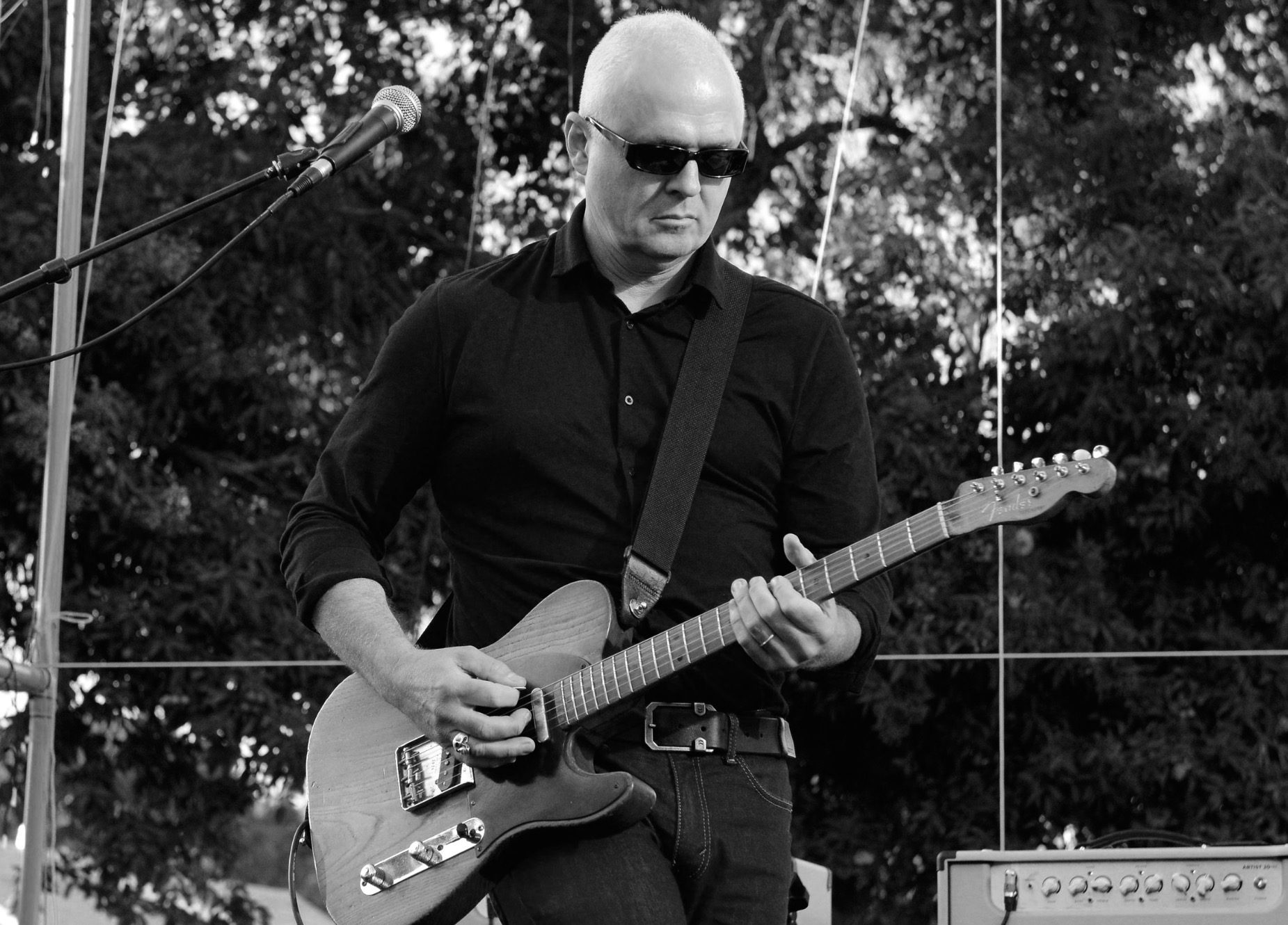
CR: What does working with Iggy again mean to you?
KA: I’ve done a lot of work with high level players like, David Bowie, Thomas Dolby, and it’s been a rare thing for me to revisit this work at this level. I knew I had unfinished business, but I never imagined it would be Iggy and this kind of thing. It’s a second chance to put together all the things you kick yourself for the first time around.
KA: I’ve kicked myself over things like on a basic level, guitar sound, since I didn’t know what I was doing back then. Now I know a lot more about that. Also your general attitude is different. I look at my younger self and think my behavior could have been better. When you’re older you don’t need to prove yourself any more. I’m glad I got a second chance to do this and heal some of the things I felt bad about. Working with Iggy Pop again is like having lightning strike twice and it’s a good feeling. It rarely happens.
CR: How did you react to the news of David Bowie’s death?
KA: David Bowie’s death was a shock. There were rumors. I’m friends with Brian Eno in London and we had discussed it on occasion, you know like ‘Have you seen David?’ There were rumors but I don’t think anyone really knew. It’s the loss of someone completely unique. The minute it was announced my phone started ringing and didn’t stop for two days. They’d say “Do you want to talk about it?” and I said, “No.” Then as the day wore on it became clear how much he prepared himself through his work. I couldn’t imagine anyone doing it this way. Bowing out this way with an album at the top of the charts and leaving clues. I started to feel I would talk about it, about what an amazing guy he was.
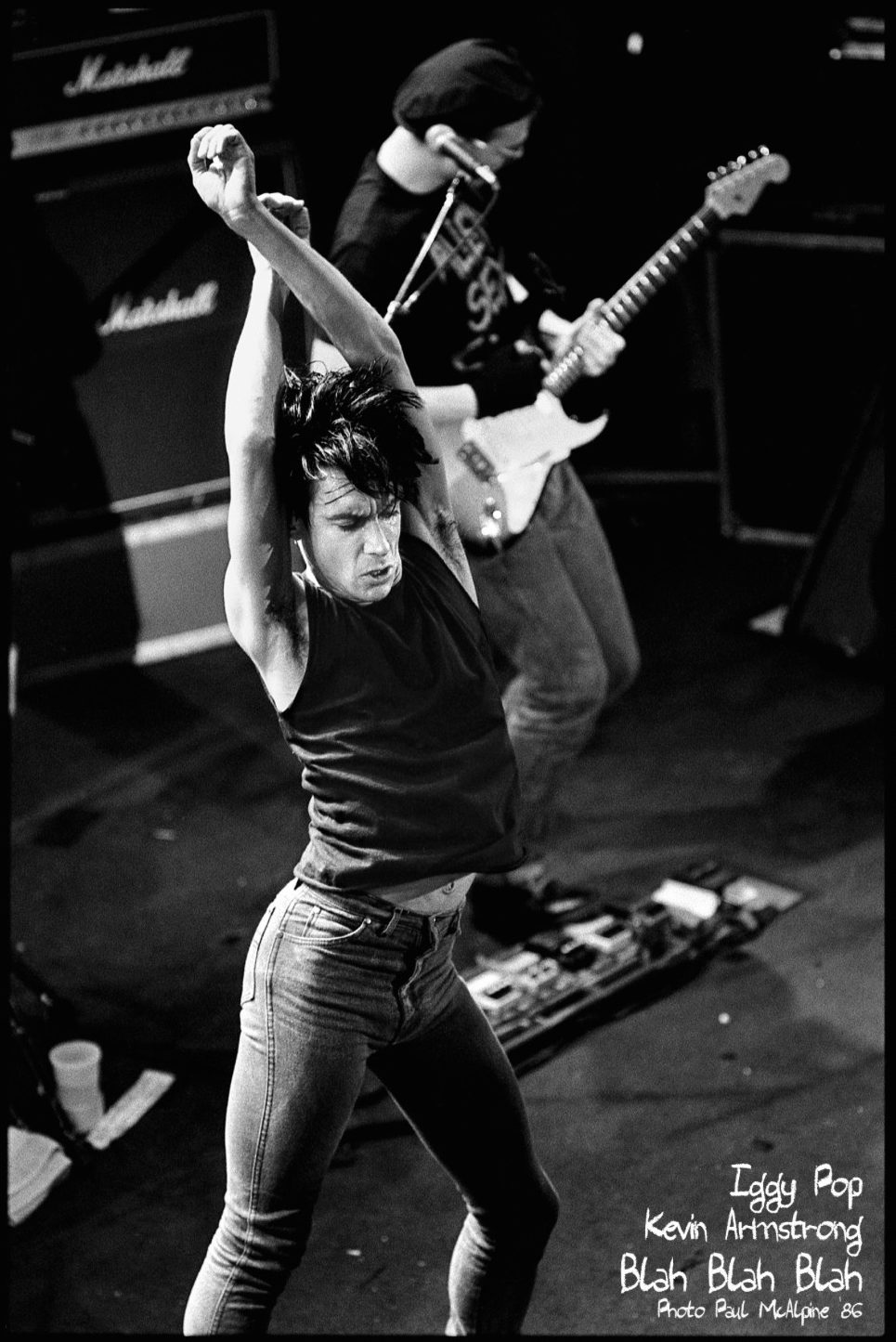
CR: What was your family like growing up?
KA: On my mother’s side, my grandfather was a drummer, my mother was an accomplished classical pianist. I think she could have had a career as a pianist. But my mom’s a weird person, I’d phone her up and tell her I’m playing with Iggy Pop and opening for a band called Metallica playing before 180,000 people this week in Mexico and she’d say “That’s nice, dear,” then I’d hear from my sister who’d say, “Mum’s really proud of you.”
KA: I’d like to say I consider myself very lucky because I’ve always gotten to do what I love to do. I believe people should do what you want to do. My dad said when I was 16 when I wanted to flunk out of school and join a band, normally your parents would say ‘You’ve got nothing to fall back on,’ my dad said, “Do it, son.” I’m very lucky.
CR: What advice would you give to artists on the way up?
KA: I had this conversation with a friend and he said, ‘If you can find a thousand people interested in what you do, and service them and get them to spend a hundred dollars a year on you, that’s $100,000 a year.’ You can become a tiny industry yourself if you have the energy to do it.
KA: The Internet has driven the quality of music down. John Peel, the DJ in London would play things nobody else would play. He had a strict rule he would not talk over the music. But even he, in the age of endless, by the yard monkey soundtracks made by one bloke and a computer, even he would start to talk over the music in the end. I think it’s better now. I hear a lot of good new artists.
KA: The musicians used to earn from record royalties, now there’s nothing there. It’s swung back towards live music. It’s kind of done a complete flip, you used to make records to promote live tour, now you give music away to sell tickets. Live skills are really important. That’s why guys like Iggy are still going, that’s where the living is to be made.
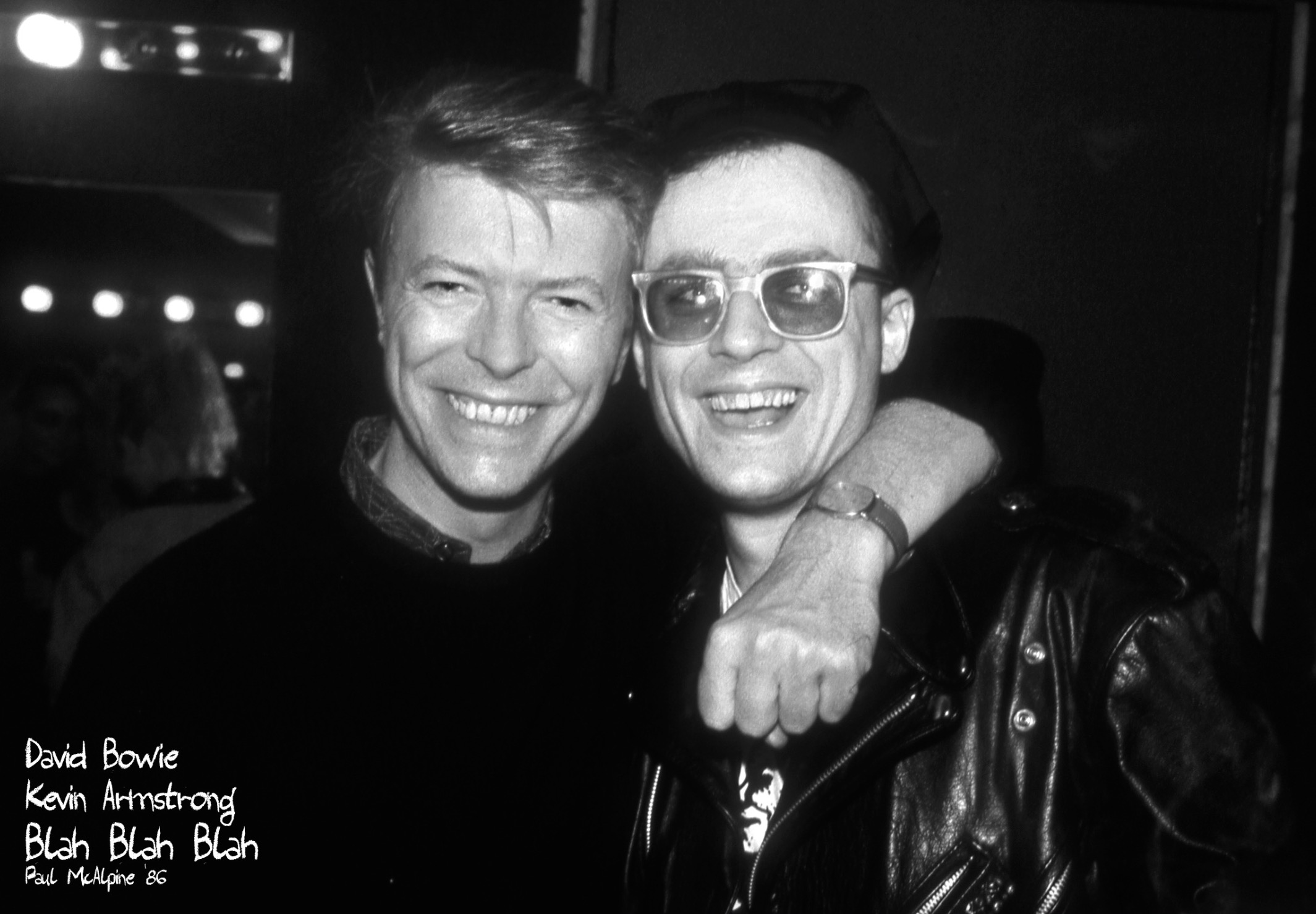
CR: What are you working on?
KA: I’m doing lots of things. After this Iggy thing three of us in this band are doing a tour with Mike Garson, David Bowie’s piano player, then immediately we’re doing a thing with Thomas Dolby. Then I’m the musical director of Gutterdammerung, the movie.
CR: Who is one of the most innovative musicians you’ve worked with?
KA: Thomas Dolby. One of the most innovative, he’s a professor at Johns Hopkins. He’s got a professorship and they gave him a budget to use a theater. He is one of the most innovative and clever musicians I’ve ever worked with and I’m about to work with him again. I always learn something. I was talking to Earl Slick about being a sideman and the attitude is, the best thing you can do is anything you go into, you can learn something from it. Whether it is to unlearn something you know or learn something. With Thomas I always learn something.
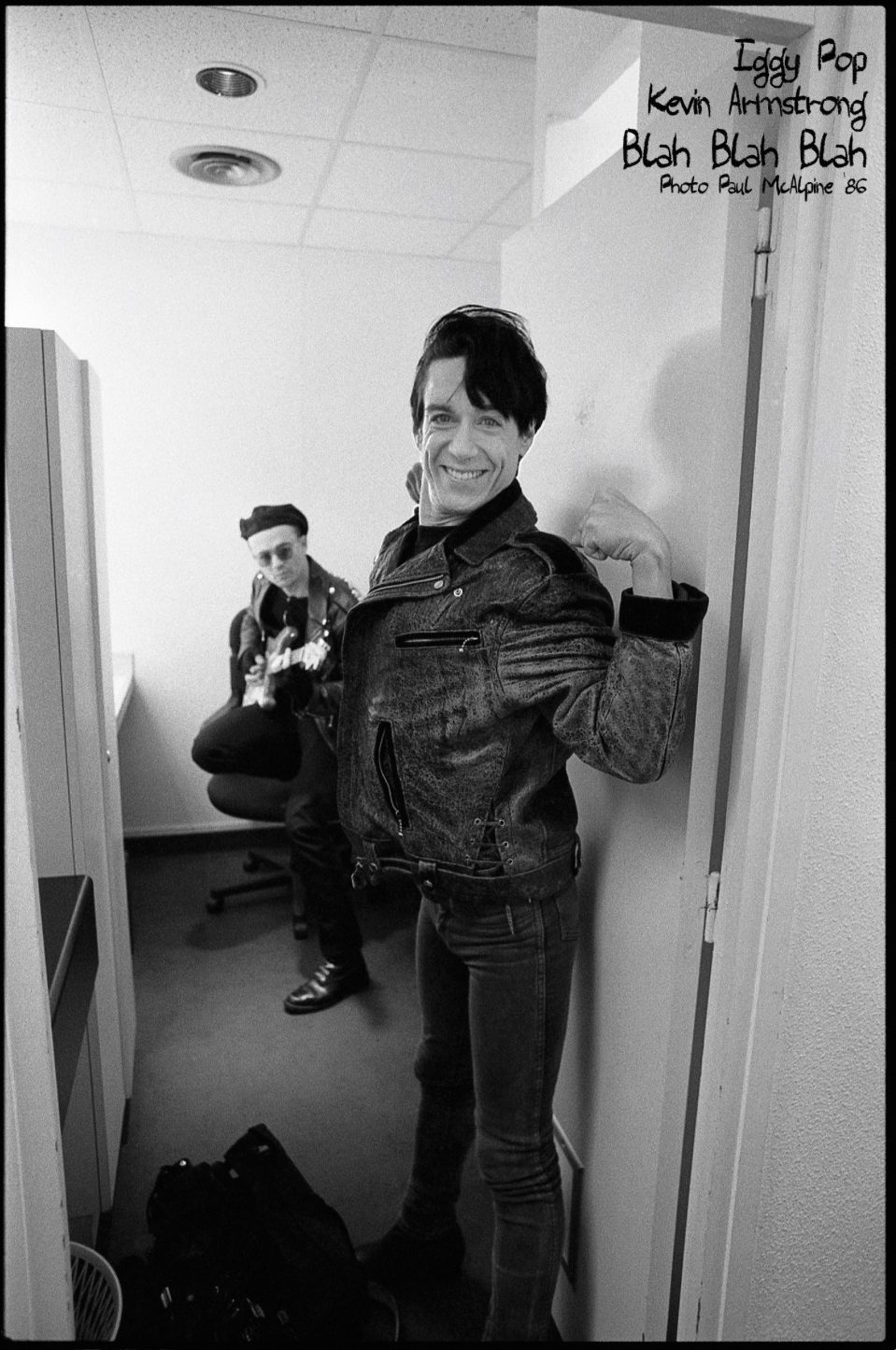
CR: How does a bandleader and side man work with a dynamic frontman?
KA: You start with examining the work they’ve done. You ask, what makes it good? For instance doing Iggy this time around I figured early on, that what people want to see in my opinion when they buy a ticket, is they want to see the music done right. It’s not Karaoke. Do we want to try recapture the music, and examine what’s good about the record and bring it into the live performance, get girls dancing, get everyone enjoying it. I felt it was up to me to say that to him. Slow the tempos, make it good, don’t run away with it and respect the original work. For him that’s a big spectrum because he’s an artist who quite uniquely straddles America and Europe. The Stooges are American, yet The Idiot and Lust For Life were part European albums. It’s quite a range of material.
KA: It’s about communication. This time it’s working well. We’re doing quite a lot of Stooges, we’re doing the later stuff and there’s the great record with Josh Homme, Post Pop Depression. We play “Gardenia,” “Break Into Your Heart” and “Sunday.”
CR: What is on the horizon?
KA: I have a studio at home, but increasingly in the most recent years, I’m less inclined to sit at a computer. I have my projects and I will continue to play live. While I’m still kicking and breathing, I don’t see myself stopping any time soon.
Check out the Kevin Armstrong website.
Video courtesy of J.T. Jasinski

